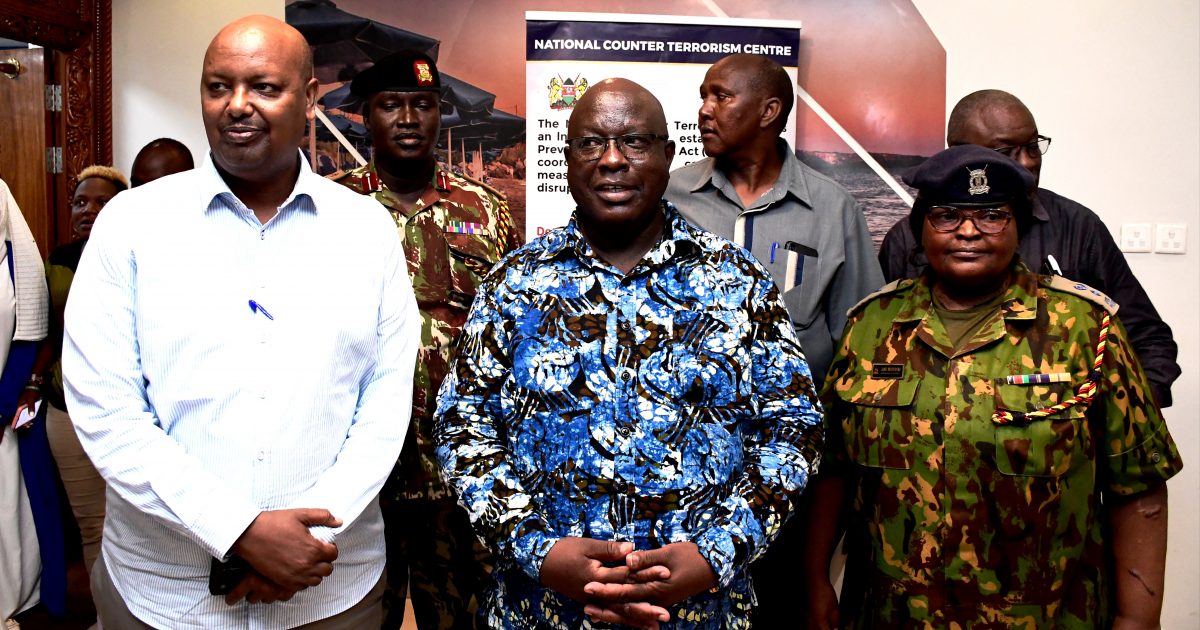The National Counter Terrorism Centre (NCTC) has embarked on the second round of public participation on the revised National Strategy to Counter Violent Extremism (NSCVE).
Last November, NCTC launched a comprehensive nationwide exercise to gather insights and feedback from a broad spectrum of stakeholders including community leaders, civil society organizations, security experts and the general public.
The exercise aimed to assess the effectiveness of the current strategy that has been in place for the last seven years and to incorporate valuable perspectives.
Joseph Mureithi NCTC Official said the initial phase of consultations yielded significant input, informing the development of a draft document that seeks to address emerging threats, incorporate good practices and strengthen our collective resilience against violent extremism.
The second round of public participation is designed to present the draft document to the public for inputs, solicit feedback and to foster engagement.
NCTC today held a public participation with security teams and stakeholders from Mombasa, Kwale, Taita-Taveta, Kilifi, Lamu and Kwale counties.
“We are here to engage the public and our partners about the ongoing review process for the NSCVE. It is part of the constitutional requirement to get public views,” said Mureithi in Mombasa.
“We had a strategy that has taken us through from 2016. It has come to a time to build on the lessons learnt, we need also to build on what we have achieved and improve on the ways we deal with Violent Extremism as a country,” he added.
Mureithi noted that through the 2016 strategy they have been working in a collaborative and multi-agency set up and were able to reduce cases of VE in the country. The new strategy will make the country safer.
The reviewed NSCVE has been established to address issues related to gender, youth, inclusion and the need for male mentorship, the strategy is now anchored in the Constitution, Law and Policy.
The approach to monitoring & evaluation has been improved by providing clear outcomes that will serve as the units of measure for impact. The strategy has reorganized the pillars into working groups, transforming them from coordination mechanisms into delivery units.
Each working group will mobilize local actors and have clear outputs aligned with intended outcomes. It provides further clarity on violent extremism as defined by Prevention of Terrorism Act 2012, distinguishing it from other forms of crime.
The strategy also addresses the issues of resourcing and sustainability.
“We have been working on building trust between the citizens and the security. We have been cooperating well. The fight against terrorism relies on the cooperation between security agencies and the public. We continue to encourage the strengthening of cooperation,” said Mureithi.
The terrorism menace, he added, is not a government issue but a societal problem that needs the participation of all the people.
Mombasa County Commissioner Mohamed Noor urged residents to give views to improve the draft strategy to solve CVE challenges.
By Sadik Hassan





